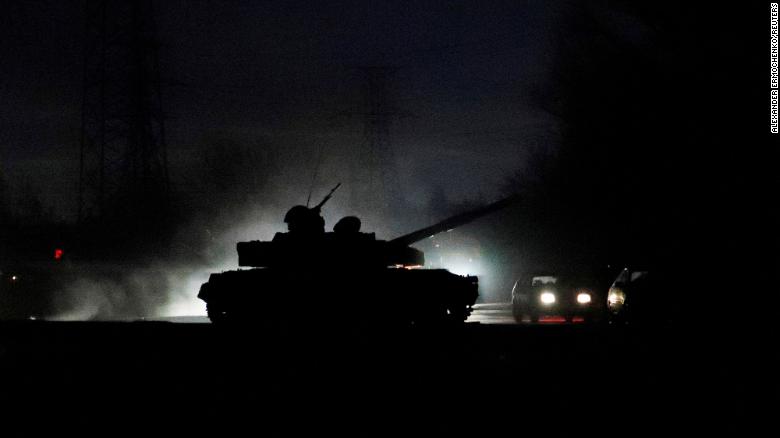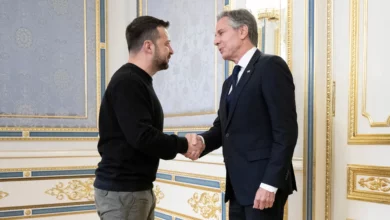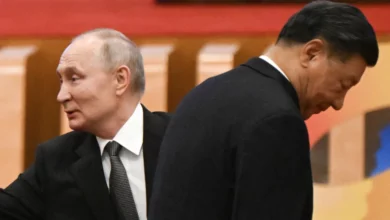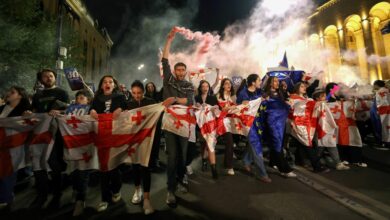
(CNN) – President Joe Biden and US officials got the intelligence right: They said Russia would invade Ukraine, despite Russia’s assurances to the contrary. After a supreme miscalculation on how the pullout from Afghanistan would go, misguided intelligence on the run-up to the war in Iraq and many other mistakes, this is an important moment for the US intelligence community.
I asked Tim Weiner, the author of the engaging and exhaustive 2007 CIA history “Legacy of Ashes,” for his thoughts on what has changed.
Our email conversation, lightly edited, is below.
How did the US intelligence community get it right?
WHAT MATTERS: One notable element of the run-up to Russia’s invasion of Ukraine is that the US intelligence appears to have been spot on. The US warned that Russia would invade, despite Russia’s denials. And then Russia invaded. How did the US intelligence get it right this time?
WEINER: The CIA director, Bill Burns, a career diplomat, and his boss, the director of national intelligence, Avril Haines, a former deputy CIA director, came to office a year ago. The American intelligence community, including the National Security Agency, which intercepts communications, had been hyper-focused on counterterrorism for 20 years. Burns and Haines refocused on Russia and China, concentrating on collecting and analyzing intelligence on the authoritarian regimes of Russian President Vladimir Putin and Chinese President Xi Jinping. For the first time in a long time, American intelligence agencies were thinking strategically, looking out over the horizon, as opposed to reporting what happened five minutes ago.
The result was a clear and prescient picture of Putin’s intentions toward Ukraine.
How spy craft changed in 2 years
WHAT MATTERS: You wrote an exhaustive history of the CIA that documents numerous intelligence failures, repeated cover-ups and bungled operations that cost the lives of thousands of people working for or encouraged by US intelligence during the Cold War. How has American intelligence-gathering changed with regard to Russia since the early 1990s?
WEINER: The question is how it’s changed since Donald Trump left office. In general, American intelligence does what the White House tells it to do. Trump’s high regard for Putin — which hasn’t changed — and his curious affinity for the Kremlin’s viewpoints meant that whatever the CIA was telling him about Russia had little bearing on American foreign policy. That has changed, obviously. When President Joe Biden calls Putin a despot, he’s drawing on reporting from the CIA, the State Department and their sister agencies.
The battle for the truth
WHAT MATTERS: Beyond intelligence-gathering, the US effectively used intelligence almost in real time. The Biden administration strategically declassified and released intelligence in an effort to preempt Russian false flag operations.
What are your thoughts on this new tactic?
WEINER: It’s not a new tactic. It’s an old one. What the US is doing is political warfare — something it hasn’t done effectively since the end of the Cold War. (This is is the subject of my last book, “The Folly and The Glory.”) Political warfare is the way in which nations project their power and work their will against an enemy, short of launching missiles or sending in the marines. Its conduct requires the full spectrum of intelligence and diplomacy, from covert operations and espionage to coercive diplomacy and economic sanctions, and the skillful orchestration of these instruments by the president. The use of political warfare — including the rapid declassification and publication of secret intelligence — exposed and effectively blunted Putin’s plans to use disinformation and lies as instruments of war. Ultimately, this is a battle for the truth, and shaping people’s views of authoritarian regimes is part of the way political warfare is waged.
How could US spies be involved in this conflict?
WHAT MATTERS: Biden has pledged repeatedly not to commit US military troops on the front lines of a war between Ukraine and Russia, so as not to start World War III. Given that pledge, how would and could the US intelligence community be utilized inside Ukraine?
WEINER: The CIA and the National Security Agency could support the Ukrainian resistance with battlefield intelligence. The CIA also could provide lethal weapons like Stinger anti-aircraft missiles. The CIA shipped billions of dollars in weapons to the Afghan rebels fighting the Soviet armed forces occupying Afghanistan in the 1980s. The CIA has been training small groups of Ukrainians in irregular warfare — that is, paramilitary operations — for eight years. It’s conceivable — if this conflict turns into a long and bloody occupation — that CIA officers could join the battle themselves, which would be a risky proposition, to say the least. There is certainly a cadre of CIA paramilitary who would be only too happy to send Russian soldiers back home in body bags.
A new focus of US intel
WHAT MATTERS: From a larger perspective, how is the US intelligence community repositioning itself, now that the US has pulled out of Afghanistan, from a focus on the war on terror of the early 21st century to the war between democracy and autocracy that Biden has warned about?
WEINER: This war is going to shape the world throughout the 21st century. Burns and Haines have made China and Russia their highest priorities. Xi and Putin want to project their power far beyond their borders — and political warfare is the primary way in which they will seek to gain a greater influence over nations near and far. But the United States will be hard-pressed to win that struggle unless and until it repairs its own democracy. The greatest defeat the United States ever suffered in the realm of political warfare came at the Capitol on January 6, 2021, when a wannabe autocrat came perilously close to overthrowing the rule of law.




